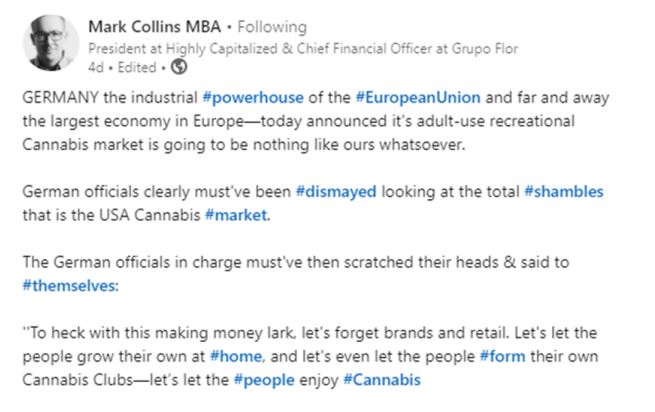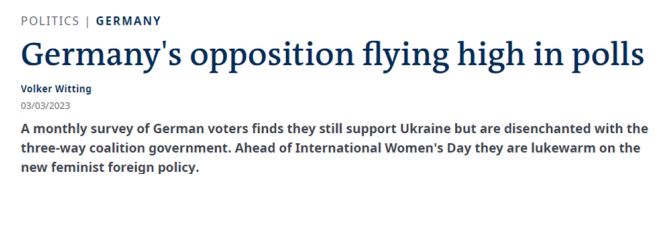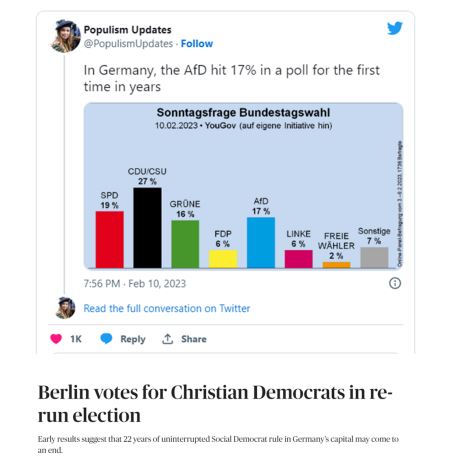In September 2021 German voters elevated a coalition of three political parties, colloquially known as the Stop Light Coalition, into power in Berlin. They were elected by voters to implement a wide range of progressive issues. Included among them was creating Europe’s first legal recreational cannabis market. Cannabis activists, businesses, and aspiring entrepreneurs have been fixated on Germany ever since. With good reason. A wealthy population of 84 million and a leader in the EU with the largest medical cannabis market in Europe. A multi-billion-dollar market rivaling California was just a few years away. Pitchdecks were created, business plans developed, and deals were made. Breadcrumbs from politicians and political insiders suggested the Coalition would propose legislation that would create a market similar in structure and intent to Canada. Not ideal but not bad either.
This all changed in late March when word began to get out that the Coalition was toning down its plans for cannabis quite dramatically. An official announcement in early April revealed a plan more in line with Malta or Catalonia than Canada.
Instead of a nationwide commercial market, the coalition draft legislation sets up:
- Non-profit social clubs that can grow and sell for up to 500 registered members;
- Personal possession of 25 grams of cannabis will become legal;
- Home grow of 3 plants;
- A Swiss-style experiment with a licensed store able to sell to a limited number of consumers to be trialed in some cities;
Why the sudden change of heart? The reason cited most often are international treaty obligations and pushback from the European Commission. Some even cite the failures of the California recreational market.

But it’s not Brussels or California that’s made the coalition change their tune. All politics is local they say and that’s true in Germany as anywhere else. The Coalition is facing discontent and a surge in the polls for the conservative opposition. Opinion polls are favorable to cannabis legalization but not overwhelming as in the US.


Just as politics, personal agendas, and issues completely unrelated to cannabis derail Congressional legislation like SAFE Banking in the US so too does Germany. Canada and Uruguay have navigated UN Treaties and Germany as its most important member could have pushed the EU Commission into accepting a broader, more ambitious plan.
Regardless of your opinion on the new legislation, it’s a major step forward for cannabis reform in the EU’s biggest and most powerful country. Just as California led the nation in the early Prop. 215 days with a non-profit model Germany can still lead the EU to brighter days for cannabis consumers and eventually businesses.
Editors’ Note: This is an excerpt from our Monthly Playbook. If you would like to read the full monthly playbook and join the thousands of others you can sign up below.


